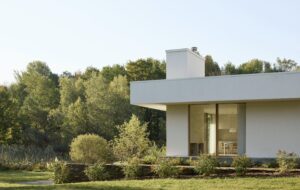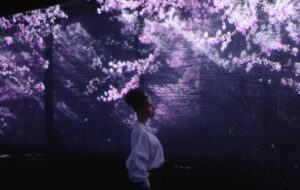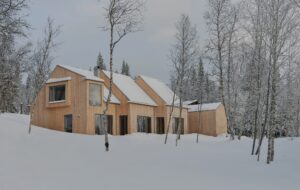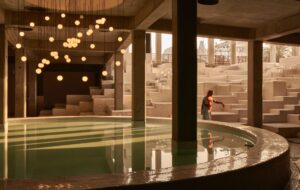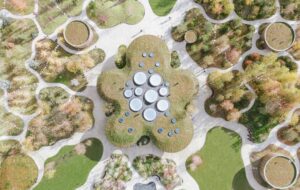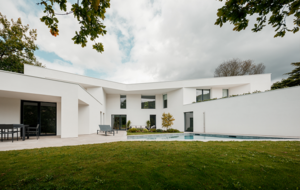|
|
||
|
Airbnb has designed its first hotel: a minimal cedar-clad building in rural Japan. But is it part of a quirky new model for tourism, or a bid for world domination? It’s quite a confidence trick. After years of insisting that Airbnb is more than just a user-friendly online room rental service – and rather gratingly promoting the brand’s design credentials (‘Airbnb bleeds design’) – its founders have put their money where their mouth is: they’ve established a studio and designed a physical space. The studio, Samara, is intended to ‘further avant garde ideas’, ‘pioneer services for connection, commerce, and social change’ and ‘explore new attitudes towards sharing and trust’. What will this mean in practice? It’s too early to tell, but its first project, the Yoshino Cedar House, provides some clues. Designed in collaboration with Japanese architect Go Hasegawa, the building was originally shown at an exhibition in Tokyo but will now be permanently relocated to a riverside spot in rural Japan and listed for hire on Airbnb. Clad entirely in cedar, the airy structure contains a community centre on its ground floor, complete with communal dining table and glass sliding doors along one side; a light, minimal staircase leads up to accommodation for travellers in the loft. The town in which it is sited, Yoshino, has struggled to cope with the emigration of its younger population to larger cities, so the project is in part an exercise in community regeneration. Locals will act as hosts and, as with other Airbnb properties, the bulk of the fee will stay in the area. If the initiative proves successful, the model could well be replicated elsewhere. And this is just one hint of the firm’s expansion plans. Earlier this year, Airbnb launched a series of online travel guides, effectively annexing territory from publishing companies already specialising in this area. Rumours also abound that it is testing out systems under which hosts can earn more by recommending and booking restaurants, preparing meals and giving tours, laying the groundwork for transitioning from a room-sharing service to a one-stop shop for travellers. But the Yoshino Cedar House is its greatest sleight-of-hand to date. In designing it’s own properties, staffed by locals and rented to tourists, Airbnb has effectively progressed beyond online marketplace to become like that rather old-fashioned enterprise – a hotel developer. |
Words Debika Ray |
|





